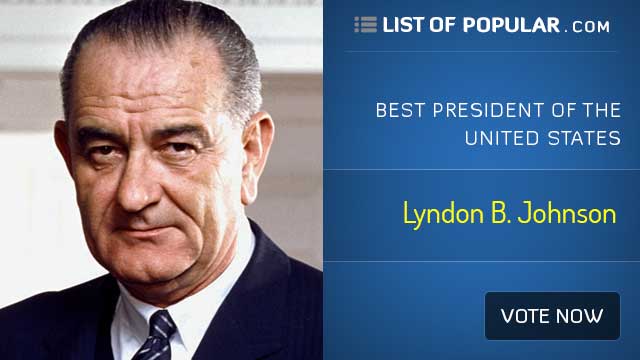The Best US President - Lyndon B. Johnson
The Early Years
LBJ, born on August 27, 1908, in Stonewall, Texas, experienced a humble beginning in the Texas Hill Country. His family's financial struggles during his childhood shaped his understanding of poverty and inequality, leaving an indelible mark on his future political career.
Political Ascendancy in Texas
Johnson's political journey began in earnest when he was elected to the U.S. House of Representatives in 1937. His exceptional skills in persuasion and negotiation quickly earned him the nickname "Master of the Senate." Johnson's ability to navigate the intricacies of legislative processes played a pivotal role in his ascent to the position of Senate Majority Leader in 1955.
The Vice Presidency
Lyndon B. Johnson's political trajectory took an unexpected turn in 1960 when he accepted the role of Vice President under President John F. Kennedy. Despite initial reservations and his preference for a more influential position, Johnson embraced the role and diligently served as Vice President until that fateful day in November 1963 when Kennedy was assassinated in Dallas, Texas.
Assuming the Presidency
On November 22, 1963, tragedy struck the nation as President Kennedy was assassinated. In a somber and historic moment aboard Air Force One, Lyndon B. Johnson was sworn in as the 36th President of the United States. He faced the formidable challenge of uniting a grieving nation and continuing Kennedy's legacy.
The Civil Rights Act of 1964
One of Johnson's most significant achievements as President was the passage of the Civil Rights Act in 1964. Recognizing the urgent need for legislative action to address racial inequality, Johnson used his political savvy to push the landmark legislation through Congress. The act aimed to end segregation in public places and banned employment discrimination on the basis of race, color, religion, sex, or national origin.
The "Great Society" Programs
Building on the momentum of the civil rights legislation, Johnson unveiled his ambitious vision for America known as the "Great Society." This multifaceted initiative aimed to eliminate poverty and racial injustice. It included programs such as Medicare, Medicaid, and the War on Poverty, reflecting Johnson's commitment to creating a more equitable and just society.
The Vietnam War
Despite his domestic successes, Johnson's presidency became increasingly defined by the Vietnam War. Initially, he escalated U.S. involvement to prevent the spread of communism. However, the conflict escalated, leading to widespread protests and internal strife. The war became a divisive issue, ultimately contributing to Johnson's decision not to seek re-election in 1968.
Legacy and Later Years
Lyndon B. Johnson left office in 1969, and his legacy is a complex tapestry of domestic achievements and the challenges posed by the Vietnam War. Despite criticism for his handling of the conflict, Johnson's contributions to civil rights and social programs significantly impacted American society. He retired to his Texas ranch, where he spent his remaining years reflecting on his tumultuous presidency until his death on January 22, 1973.
Conclusion
Lyndon B. Johnson's presidency was marked by both triumphs and challenges. His legacy as a champion of civil rights and architect of the "Great Society" programs continues to shape discussions about the role of government in addressing societal issues. Johnson's ability to navigate the complexities of domestic politics left an indelible mark on American history, earning him a place among the influential leaders of the 20th century.

